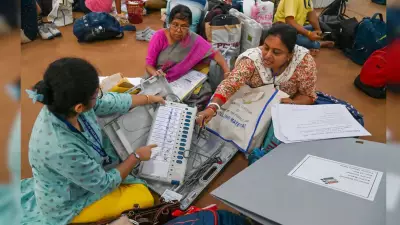
In a landmark judgment that could reshape employment opportunities for marginalized communities, the Andhra Pradesh High Court has directed the state government to implement reservations for transgender persons in public employment within six months.
Court's Strong Stance on Inclusion
Justice Nyapathy Vijay delivered the powerful verdict while hearing a petition filed by a transgender woman who challenged the non-notification of vacancies specifically for transgender candidates. The court emphasized that the state has a moral obligation under the Constitution to take affirmative action for the transgender community.
"The transgender community is not only socially and economically backward, but has also been abandoned by society," Justice Vijay observed during the proceedings. The judgment highlighted the historical and contemporary discrimination faced by transgender individuals in Indian society.
The Case That Sparked Change
The legal battle began when a transgender woman applied for positions of School Assistant (Language) Hindi and TGT (Language) Hindi but discovered that no vacancies were being notified for transgender candidates. Her counsel pointed out that from the proposed 16,000 posts under the DSC-2025 notification, not a single position was allocated for transgender applicants.
The state government's representation argued that providing special reservation to transgender persons required a policy decision, and in the absence of such policy, the recruitment process couldn't be faulted. However, the court rejected this argument, emphasizing the urgent need for inclusive measures.
Legal Foundation and Historical Context
The court referenced the Supreme Court's landmark judgment in National Legal Services Authority v. Union of India and the subsequent enactment of The Transgender Persons (Protection of Rights) Act, 2019. Despite these legal frameworks, the court noted that no specific quota in employment or educational institutions had been provided to transgender communities by the state.
"As the origin of the problems of transgender persons in India lies in stigma and discrimination they face in family and society, resulting in their exclusion from the socio-economic cultural-political spectrum, there is a dire need to mainstream them," the court stated in its order.
Broader Implications for Social Justice
The judgment represents a significant step toward implementing the constitutional promise of equality and social justice for one of India's most marginalized communities. The court specifically directed the state government to consider the petitioner's case for appointment to the post of School Assistant while implementing the broader reservation policy.
This ruling comes at a crucial time when discussions about inclusive employment practices and diversity in public sector jobs are gaining momentum across India. The six-month deadline sets a clear timeline for the state government to translate judicial directives into actionable policies.
The Andhra Pradesh High Court's decision could potentially influence similar cases in other states and accelerate the implementation of transgender-friendly policies in public employment nationwide.





